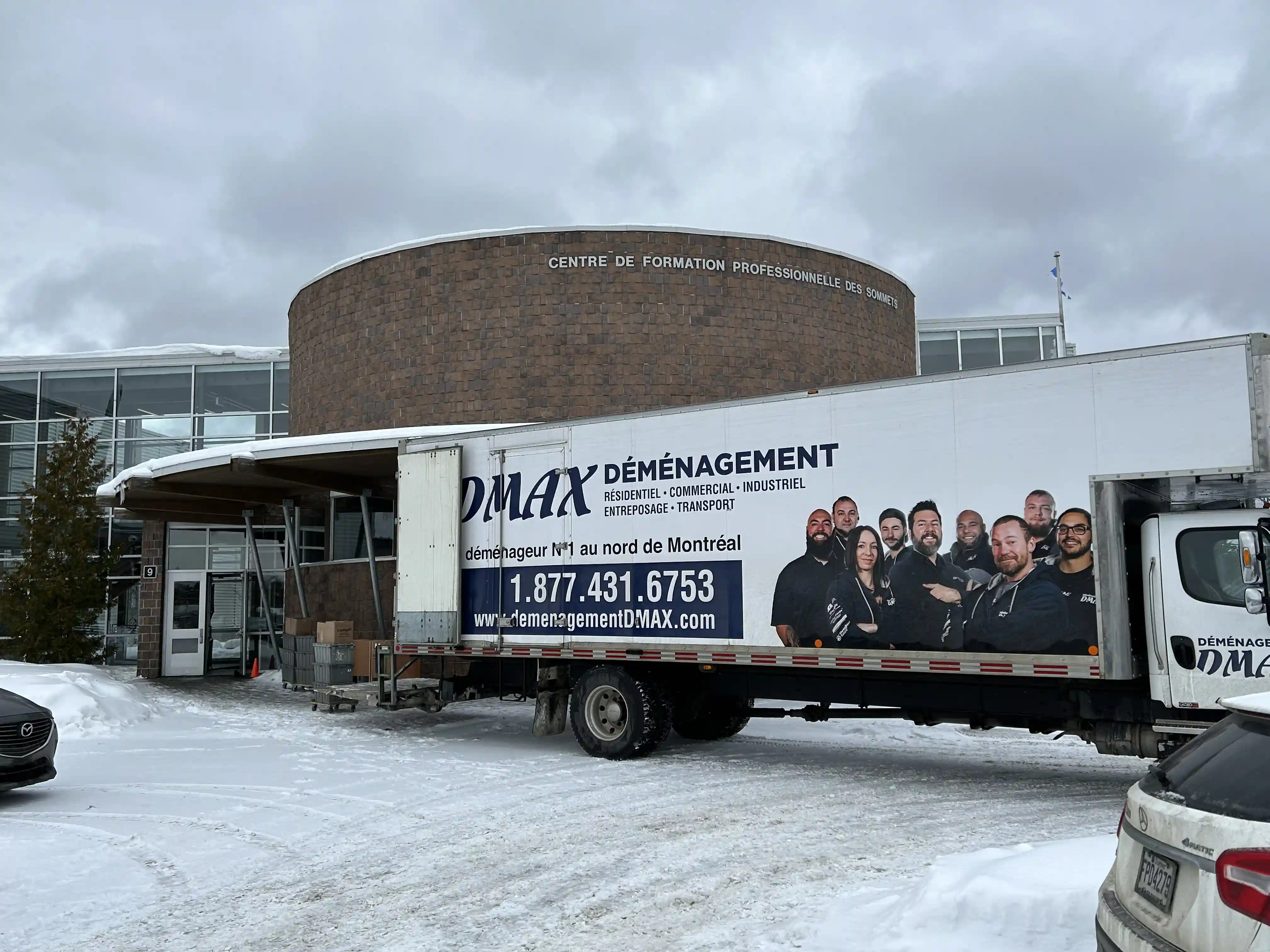When planning a move, it’s natural to want to work with a moving company you can trust. From selecting your movers to organizing transportation and protecting your belongings, many questions arise quickly.
Should you go with a local moving company or compare multiple providers? How do you get a clear estimate and ensure the services actually match your needs?
Taking the time to check insurance, read customer reviews, and understand the contract can help you avoid major issues on moving day. Learning about payment terms, hidden fees, or how fragile items are handled also brings more peace of mind.
This guide covers the key tips for choosing a moving company, comparing offers, and asking the right questions before signing a contract.
Why hire a professional moving company?
Whether you’re moving nearby or relocating across a long distance, hiring experienced movers makes a big difference. They ensure efficient handling, keep your belongings safe, and reduce your stress throughout the process. Here’s why it’s worth trusting a reputable moving company.
Safety and protection of your belongings
Professional movers use the right equipment to handle your items, reducing the risk of damage or loss.
Most moving companies offer insurance to protect your belongings from pickup to delivery. This avoids unpleasant surprises and lets you move with peace of mind. For example, our company includes civil liability coverage up to $2,000,000 and transport unit protection up to $100,000.
Time-saving and stress reduction
With a trained moving team, every step is handled for you—from packing and loading to transport and unloading. This saves time and cuts down on the stress of organizing your move. You can focus on settling into your new place or handling administrative tasks related to your change of address.
Expertise and skill
Movers are skilled in handling everything from everyday items to large items like pianos, safes, industrial fridges or pool tables. Their experience helps maximize space in the truck. Every item is carefully protected. And most importantly, agreed-upon timelines are met, ensuring a smoother transition into your new home.
To avoid unpleasant surprises, we recommend reading our article on how to compare piano moving costs.
Comparison Table: Professional Movers vs. DIY Moves
| Criteria | With Professional Movers | DIY Move |
| Item Safety | Careful packing, insurance, proper gear | Risk of damage, no included insurance |
| Time | Experienced team, efficient organization | You plan everything, takes longer |
| Stress | Full service, tailored advice | Handle everything yourself, more stress |
| Expertise | Know-how, experience, on-time delivery | Lack of experience, potential mistakes |
| Costs and Estimates | Clear quote, secure payment, clear contract | Unpredictable costs |
| Services Offered | Full service (packing, transport, assembly) | Limited services, you do most yourself |
How to Find the Right Moving Company
Here are three ways to help you find a reliable mover who fits your needs.Ask for Recommendations
Start by reaching out to people you trust. Friends, coworkers, or family members may have already used a moving company and can share their experience. Personal recommendations often offer a solid starting point for identifying trustworthy movers and getting a sense of service quality.Use Online Comparison Tools
In Canada and Quebec, there are platforms that make it easier to compare different companies. For instance, websites like Soumissions Déménageurs or MovingWaldo let you review multiple quotes, view associated costs, included services, and availability for your chosen moving date.
Check Reviews and Ratings
Before making a decision, take time to read customer reviews on platforms like Google, Facebook, or Trustpilot. These insights will give you a clearer picture of a company’s reputation, overall satisfaction, and any potential red flags.
Key Criteria for Choosing a Reliable Mover
Company Reputation and Experience
Choose a company known for its reliability and positive reviews. Make sure it’s established locally and nationally. Also check its experience with long-distance moves or tricky conditions, like basement access or tight entryways.
Insurance and Guarantees
Ensure the company offers liability insurance that matches the value of your belongings. Ask for coverage details to avoid surprises in case of damage or loss.
Licenses and Certifications
In Quebec, movers must be registered with the Commission des transports du Québec. This confirms they follow current regulations and operate legally.
Proper Equipment and Supplies
Make sure the team has everything needed: dollies, blankets, sturdy boxes, and lifting equipment if necessary.Clear Pricing and Detailed Estimates
The company should provide a written estimate breaking down costs (labor, mileage, supplies, insurance). Transparent pricing helps you avoid hidden fees on moving day.
Clear and Detailed Contract
Before signing anything, review the contract carefully. It should list the moving date, number of workers, payment terms, and cancellation policy. A written contract protects your rights.Availability and Responsiveness
A good moving company replies promptly and adapts to your needs, whether you’re moving in summer, changing dates, or adjusting the volume of items to be moved.
Questions to Ask Before Hiring a Mover
Before committing, make sure to ask the moving company these questions:
- What kind of insurance do you offer?
- Can you provide client references?
- How do you handle claims and damages?
- Can you break down your pricing?
- What are your payment terms?
- What is your cancellation policy?
- Do you outsource any part of the service?
Common Pitfalls to Avoid
Be wary of offers that seem too good to be true: they often hide additional fees or poor service quality. Reputable movers don’t offer unrealistically low prices without a clear explanation.
Always confirm that the company is legally registered and recognized by the appropriate authorities, like the Commission des transports du Québec.
This ensures regulatory compliance. Never skip reading the contract. All terms, prices, insurance coverage, and cancellation rules should be clearly stated. A detailed contract protects your rights and helps prevent disputes.
Consumer Protection: What to Do If Problems Arise
What to Do in Case of Disputes
If something goes wrong, keep all records: quotes, contracts, emails, and photos of damaged items. Start by contacting the company directly to resolve the issue. If that fails, turn to a mediation service or consumer protection agency.
In Quebec, the OPC is a key resource. They can guide you, help you file a complaint, and intervene if needed.
What Are Your Options for Compensation?
If your items are damaged, the company must compensate you according to the contract and insurance terms. Read the clauses carefully. If they refuse or you disagree, you can contact the CTQ, which oversees moving companies and can step in to uphold your rights.
Planning a move? Get in touch with our movers, we’ll make sure you have the smoothest experience possible.




Post a comment